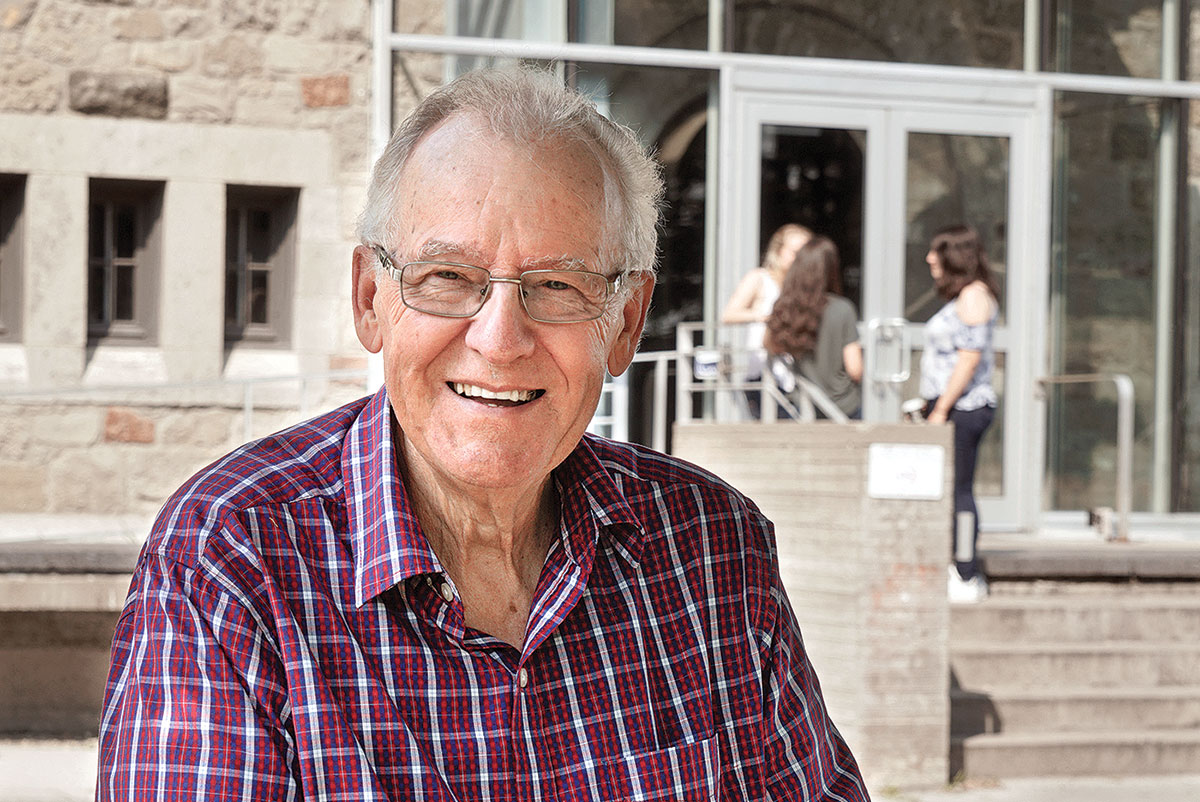Jean-Luc Lavoie1 was a privileged witness to the emergence of unionism for professional workers in cégeps. He remembers the intense and exciting social context within which cégeps were born: there was so much to do and so much to change.
“At the beginning, seven cégeps outside Montréal were meant to open, but pressures in early 1967 increased the number to 12. Yet, the official opening was still planned for the fall of the same year!” he laughs.
Exhilarating and turbulent times
Québec society in the 1960s was thirsty for progress and change. Cégeps were an instant success. “The creation of the network of cégeps fulfilled a huge popular aspiration that had long been stifled. There was a true explosion in attendance during the following years. We had to create programs, hire personnel, and structure departments in record time,” he adds.
During implementation, students, support workers, and teachers all had their say and quickly took ownership of the power structures offered by the new institutions. The preferred model of organization was a union one. The sky was the limit for demands and actions were supported by strong mobilization.
“During these turbulent times, we didn’t hesitate to challenge established and hierarchical orders. After the events of May 1968 in France, and the student occupation in Québec at the start of the following school year, the atmosphere was electric to say the least!,” he continues.

A brutal realization
In turn, non-teaching professionals (as college professionals were called at the time) formed a limited contingent whose role was unclear. They sought direction, but their proximity to management and members of the education directorate kept them in a situation that soon became unbearable.
Jean-Luc Lavoie recalls a discussion he had with a director of educational services when he questioned the working conditions of professionals. “The director responded with: ‘Well you, you’re nothing.’ And what he meant was that because we – myself, my peers in accounting, at the library, etc. – were neither management, nor teachers, nor support personnel. We were nothing. He was right. It was a real shock to hear.”
At the same time, in other cégeps, other professional personnel were experiencing similar disappointments. “We found ourselves in a kind of no man’s land. We didn’t exist. We understood then that it was time for us to organize. We had to do something.”
Management exploited the situation
Every option was considered. Local initiatives were created, bona fide non-union associations were formed, and discussions were held with representatives of the Ministère de l’Éducation. Yet nothing was done.
Despite the unease certain members felt towards a union discourse they believed was too strong, radical even, the following was clear: “Some players were playing hardball. Management exploited the chaos. We had to regroup to defend our interests and stop arbitrary decisions made by bosses,” says Jean-Luc Lavoie.
A wind of change
The first cégeps to receive union accreditation were Vieux-Montréal, Limoilou, and Édouard-Montpetit in 1972. Their concerted strike in January 1973 had a catalytic effect as the group demonstrated the impact of union action.
Six years passed before the first professional unions were founded, and another year before the creation of the first federation of unions of professional workers. When first founded on October 5, 1974, the Fédération du personnel professionnel des collèges, affiliated with the CEQ (now the CSQ), consisted of 171 members from seven unions. Nearly a year later, with its 11 unions, the Fédération entered into its first negotiation.
In 2017, despite the progress made, the fight for increased recognition of the role and expertise of professional workers in cégeps remains unfinished. Representing 17 job titles, professional workers must continue the fight and remain ever vigilant when it comes to the evolution of their duties and the need for additional professional resources, which are connected to funding in cégeps. “No one will do it for us,” concludes Jean-Luc Lavoie.
1Jean-Luc Lavoie is an original unionist and militant at the Fédération du personnel professionnel des collèges (FPPC-CSQ). He authored a book titled: Une histoire pour notre avenir, trente-cinq ans de lutte pour le personnel professionnel des collèges.
